Cultural Diversity Posts on Crowch
On March 1, 2026, thousands of runners from around the world will take to the streets of Japan’s capital to conquer the Tokyo Marathon. Covering 42 kilometers through one of the most dynamic cities on Earth, this event is not only about speed or records. It is about stories — personal journeys of courage, resilience, and inspiration that give the marathon its unique spirit.
Every Participant Is a Hero
Alongside the professional athletes chasing world titles and records, there will be thousands of everyday runners. For some, completing the marathon means overcoming illness or injury. For others, it is a way to raise money and awareness for charities. For many, it is the realization of a lifelong dream. Each runner’s story contributes to the mosaic of the Tokyo Marathon, turning it into far more than just a sporting contest.
An Atmosphere of Support
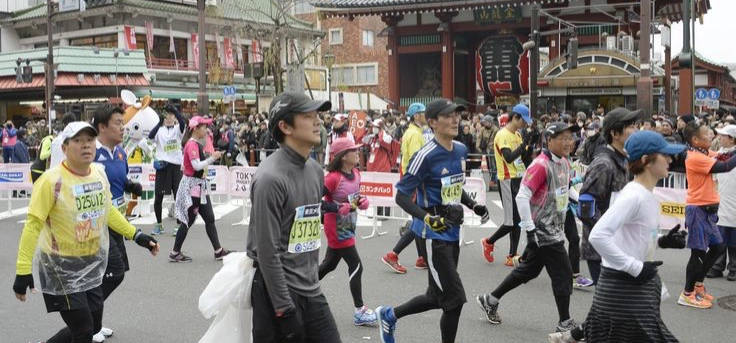
One of the defining features of the Tokyo Marathon is its extraordinary crowd. More than a million people line the streets, clapping, shouting encouragement, waving signs, and offering energy to tired runners. The sound of taiko drums, the cheers of school bands, and the chants of strangers give participants the motivation they need to push through the hardest kilometers. For many runners, this support becomes the deciding factor that helps them cross the finish line.
Inspiration Beyond the Finish Line
The Tokyo Marathon has become a global symbol of persistence and human spirit. Watching thousands of runners push their limits reminds us all that the impossible can be achieved with determination and belief. These stories of resilience don’t just inspire the spectators in Tokyo; they resonate with millions of viewers worldwide who follow the race through broadcasts and social media.
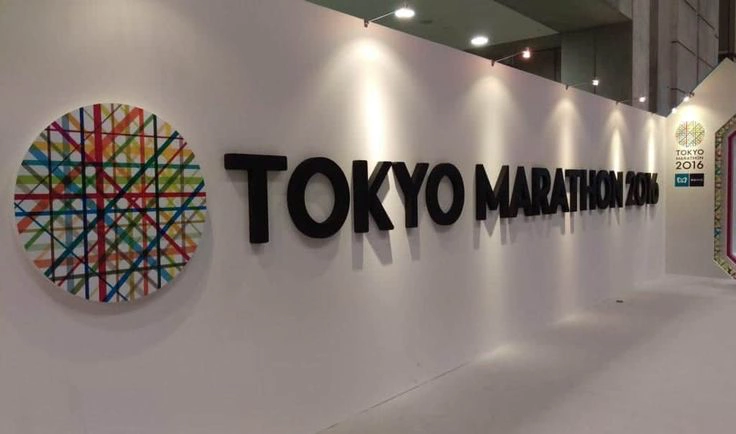
More Than Sport
What makes the Tokyo Marathon so special is that it unites sport with culture and society. The route itself is a journey: past skyscrapers, historic temples, bustling shopping districts, and the Imperial Palace. It is a race through tradition and modernity, but also a collective experience that brings people together, regardless of age, nationality, or background.
The Human Spirit in Motion
Every marathon is a test of endurance, but in Tokyo, it is also a celebration of unity and hope. Thousands of unique personal journeys unfold simultaneously, yet they all share the same spirit: to move forward, to overcome, and to inspire.
✨ The Tokyo Marathon 2026 is not simply a race — it is a collection of stories woven into one narrative about the strength of humanity, the power of belief, and the endless pursuit of new horizons.
In the summer of 2026, the Spanish city of Tarragona will become the heart of sport and culture in the region as it hosts the XX Mediterranean Games. This major event will bring together thousands of athletes and millions of spectators, creating a vibrant festival of sport, friendship, and diversity.
Young Heroes on the Stage
The Mediterranean Games have long served as a launching pad for young athletes who dream of setting records and competing at the Olympic Games. It is here that new names emerge and spectators witness the first steps of future champions. The Games embody both the promise of youth and the spirit of ambition.

A City in Celebration
Tarragona will transform into a living stage where sport and culture meet. The streets will be filled with festivals, exhibitions, concerts, and culinary fairs, turning the Games into more than a competition. They will become an experience where athleticism and art walk hand in hand, creating memories for locals and visitors alike.
Friendship Without Borders
More than 25 nations will come together to demonstrate that rivalry on the field does not stand in the way of respect and friendship off it. The Mediterranean Games are a symbol of understanding and solidarity, reminding us that every participant is part of one larger family that transcends borders.
A Legacy for the Future
Organizers are placing strong emphasis on sustainability and long-term impact. New sports facilities, transport systems, and cultural initiatives will remain for the city and its residents long after the final medal is awarded. The Games will not only be a celebration of 2026 but also a contribution to the region’s growth for decades to come.

✨ The Mediterranean Games 2026 will embody youthful energy, culture, and sport — uniting the nations of the Mediterranean in a festival of friendship and shared celebration.
In August 2025, Australia will host the XXIV Commonwealth Games — a landmark sporting event bringing together more than 70 nations and territories of the Commonwealth. As one of the largest international competitions outside of the Olympics, the Games uniquely blend world-class sport with cultural exchange and friendship among nations.
History and Significance
First held in 1930, the Commonwealth Games have grown into a symbol of unity for countries bound by shared history and values. Every four years, athletes from Africa, Asia, Europe, the Caribbean, and Oceania gather to compete across dozens of disciplines — from athletics and swimming to netball and rugby sevens, which have become trademarks of the event.
The 2025 Games in Australia
Organizers promise that the 2025 Games will be among the largest and most innovative ever staged. Competitions will be spread across multiple modern venues in several Australian cities, ensuring that different regions can share in the excitement. Sustainability and legacy are major priorities: arenas will be designed with eco-friendly technologies, while infrastructure will remain accessible and useful for communities long after the Games conclude.

Athletes and Sports
More than 5,000 athletes are expected to participate. The program will include over 20 core sports along with several para-sports disciplines, highlighting the Commonwealth Games’ commitment to inclusion and equal opportunity. Athletics, swimming, cycling, and gymnastics traditionally draw the biggest crowds, but what sets the Games apart is the presence of sports less common on the global stage yet deeply important to Commonwealth nations.
A Cultural Celebration
The Commonwealth Games are not only about medals. They are accompanied by a rich cultural program — festivals, concerts, exhibitions, and exchanges that allow participants and fans to experience the traditions of diverse nations. Australia plans to showcase Indigenous heritage and cultural diversity, bringing together history, identity, and innovation on the world stage.

A Symbol of Friendship and Unity
At their heart, the Commonwealth Games are a celebration of community and respect. They are a platform for athletes to inspire, for cultures to connect, and for nations to strengthen their bonds. In the spirit of fair play and friendship, the Games leave behind stories of courage, inclusion, and mutual understanding that endure long after the closing ceremony.
✨ The Commonwealth Games 2025 in Australia will be a festival of sport, culture, and human unity — a gathering that brings nations and continents together in pursuit of a brighter future.
In the spring of 2026, Italy will host the greatest event in the world of Paralympic winter sports — the Winter Paralympic Games. From March 6 to 15, Milan and Cortina d’Ampezzo will become the stage where thousands of spectators will witness not just competitions, but true stories of resilience and inspiration.
Sport Without Limits
More than 600 athletes from 50 nations will compete in cross-country skiing, biathlon, para ice hockey, alpine skiing, and snowboarding. For each of them, the road to the Paralympics has been a journey of years of dedication, hard training, and overcoming obstacles. Their performances prove that sport knows no boundaries and that determination can surpass any challenge.
Milan and Cortina — Capitals of Inspiration
The opening and closing ceremonies will take place in Milan, where state-of-the-art arenas will also host the ice competitions. Meanwhile, Cortina d’Ampezzo, framed by the majestic Dolomite Alps, will stage the alpine skiing and snowboarding events. Here, the breathtaking natural landscapes will make every race and every descent not only a sporting spectacle but also a celebration of beauty and human courage.

Games That Transform Society
The organizers emphasize accessibility and inclusion as key priorities. Transportation networks, stadiums, hotels, and urban spaces are being adapted to meet the needs of people with disabilities. The true legacy of these Games will be far greater than records or medals — it will be the creation of a more open, welcoming, and inclusive environment that will benefit generations to come.
Stories That Inspire the World
Every Paralympics offers unique and unforgettable moments. Behind each medal is a personal story of perseverance, sacrifice, and victory. These are not just athletic achievements — they are examples that inspire millions of people around the globe. The Winter Paralympic Games 2026 will once again remind us that human spirit and determination can overcome seemingly impossible barriers.
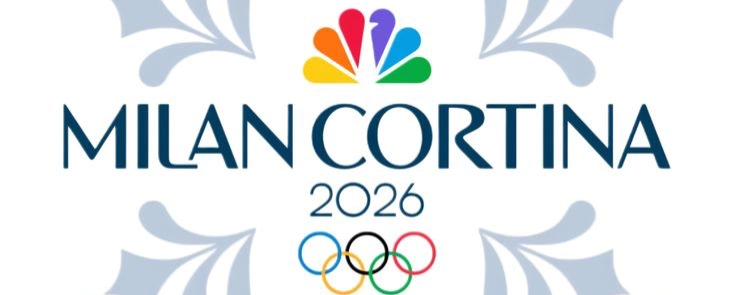
Together Toward the Future
The 2026 Paralympic Games will be more than a sporting festival. They will be a festival of humanity, solidarity, and respect. For the athletes, it is the culmination of years of hard work. For the fans, it is a chance to experience powerful emotions and to support their heroes. And for society, it is another step toward equality and recognition of the value of every individual.
✨ The Winter Paralympic Games 2026 in Milan and Cortina d’Ampezzo will be a powerful reminder that sport can change lives, inspire the world, and bring people closer together.
From February 6 to 22, 2026, Italy will become the center of the sporting world. Milan and Cortina d’Ampezzo will host the XXV Winter Olympic Games, bringing together more than 3,500 athletes from nearly 100 countries to compete in 16 sports. Beyond the medals, the Games will symbolize unity, cultural exchange, and inspiration for millions of fans worldwide.
🏔 Two Cities, One Olympic Spirit
For the first time in Olympic history, the Games will be split between two cities, each offering its own unique atmosphere:
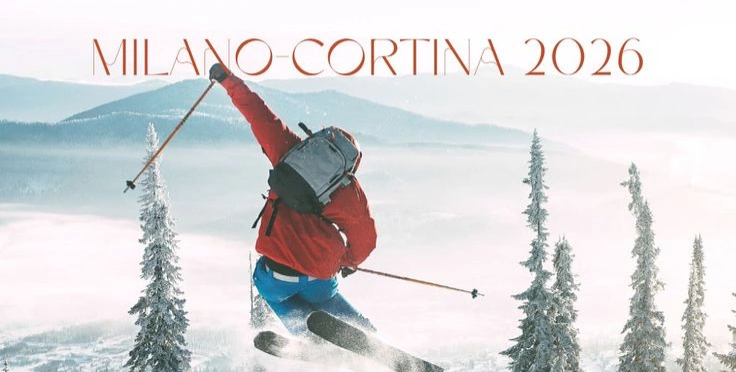
- Milan — Italy’s hub of fashion, design, and innovation, will host the opening and closing ceremonies, figure skating, ice hockey, short track, and speed skating.
- Cortina d’Ampezzo — the jewel of the Dolomites and a legendary ski resort, will stage alpine skiing, biathlon, ski jumping, luge, and bobsleigh.
This combination of a bustling metropolis and an Alpine resort highlights Italy’s diversity and creates a once-in-a-lifetime experience for athletes and fans.
🥇 Competitions and Expectations
The Olympic program will feature traditional winter sports such as cross-country skiing, ski jumping, speed skating, and hockey. At the same time, new and expanded disciplines in freestyle skiing and snowboarding will bring a fresh, youthful, and dynamic energy to the Games.
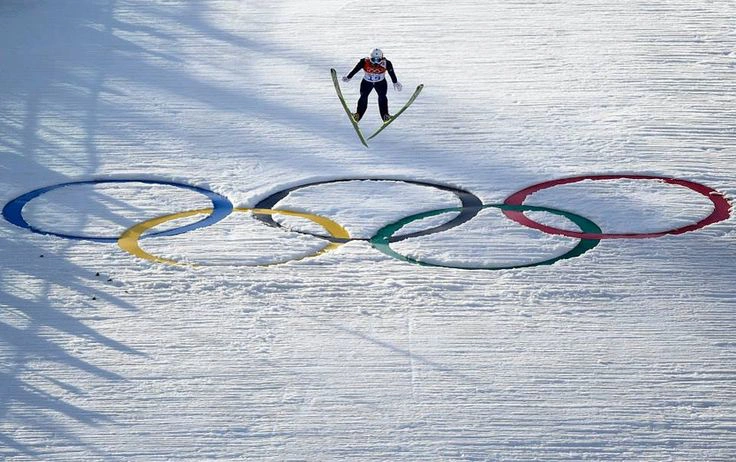
Fans are especially excited about women’s hockey, figure skating duels, and the adrenaline-packed alpine skiing events. The 2026 Games will be an opportunity for established stars to cement their legacies and for new heroes to inspire the world.
🌍 A Cultural Bridge
The Winter Olympics are not just about sport — they are also a cultural festival.
- In Milan, concerts, fashion shows, and theater performances will turn the city into a hub of celebration.
- In Cortina, visitors will enjoy Alpine food festivals, open-air music events, and art installations inspired by the mountains and winter traditions.
Together, they will create an atmosphere where sport and culture meet, strengthening the Olympic spirit of friendship and cultural exchange.
🌱 Sustainability and Legacy
The organizers of Milan-Cortina 2026 have placed strong emphasis on sustainability:
- Most competitions will be held in existing venues, minimizing the need for new construction.
- Green transport solutions will connect venues and cities, reducing the carbon footprint.
- The legacy of the Games will include upgraded infrastructure, improved accessibility, and environmental awareness for future generations.
The 2026 Olympics aim to set a new standard for sustainable international events.
🎉 Festival Atmosphere
Fan zones in both Milan and Cortina will allow thousands of spectators to come together to watch live broadcasts, participate in interactive activities, and celebrate victories as one community.
For Italy, the Olympics are more than sport: they are an opportunity to showcase the country’s hospitality, traditions, and cultural richness. Visitors will discover not only the beauty of the Alps but also the modern energy of Milan, creating a complete and unforgettable experience.
✨ Looking Ahead
The Winter Olympics 2026 are expected to mark a turning point in how the Games are perceived. By combining tradition with innovation, and sport with culture, they will show that the Olympics are not only about winning medals but also about unity, inspiration, and global friendship.
In a world where differences often create divisions, sport and culture act as powerful forces that bring people together. They create cultural bridges, helping us find common ground and new forms of interaction.
🏅 The Olympic Games — A Symbol of Unity
Every four years, the Olympics gather athletes and fans from across the globe. For a few weeks, borders disappear, and the Olympic flame becomes a symbol of shared humanity. The Games remind us that sport can unite, regardless of political or cultural differences.
⚽ World Cups — Celebrations of Culture
FIFA World Cups are more than football tournaments; they are cultural festivals. Qatar 2022 showcased Arab identity, while North America will unite the U.S., Canada, and Mexico in 2026. Fans experience not just matches but also traditions, food, music, and the spirit of the host nation.
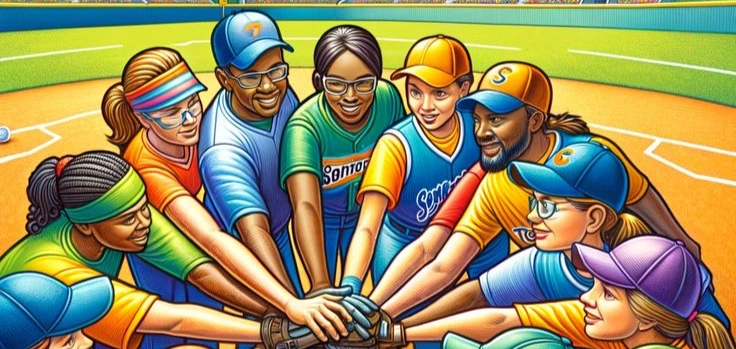
🎮 Esports — The Bridge of a New Generation
Esports has emerged as another cultural bridge for younger generations. Global tournaments like the Esports World Cup gather players and fans from all continents. The language here is gaming — fans from Asia, Europe, Africa, and the Americas cheer side by side.
🎶 Culture Within Sport
Modern sport is inseparable from culture. Olympic ceremonies blend tradition with innovation, while the Super Bowl halftime show has become a cultural phenomenon of its own. Sport provides a platform where nations share their art, music, and identity with the world.

🌍 The Bridge of the Future
The importance of cultural bridges will only grow. NBA games in Europe or NFL matches in Brazil and Ireland are not just about sport — they are cultural exchanges. With digital broadcasting and virtual reality, these experiences become accessible to millions everywhere.
✨ Conclusion
A cultural bridge is more than a metaphor — it is reality. Sport and culture allow us to connect, celebrate diversity, and build unity. Every match, every performance, and every event is a step toward a world where we are closer to each other.
The summer of 2025 made history as Singapore hosted the World Aquatics Championships for the first time. Over 2,400 athletes from more than 200 countries competed across six disciplines: swimming, artistic swimming, diving, high diving, open water swimming, and water polo.
🏊♂️ Swimming — The Heart of the Championships
The pool delivered the most emotions. Thrilling finals in the 100m and 200m events, dramatic relays, surprising breakthroughs, and new rising stars captivated millions of fans. Several world records were set, proving that sport never stops evolving.
🤸 Artistic Swimming — The Beauty of Sport
Artistic swimming turned into a true spectacle where sport met art. Complex routines, perfect synchronization, and vibrant performances showed that athletic excellence can be combined with artistic expression.
🤽 Water Polo — The Spirit of Teamwork
Water polo matches were among the most intense. Fierce battles, dynamic gameplay, and last-minute goals kept fans on the edge of their seats, embodying the essence of teamwork and competition.
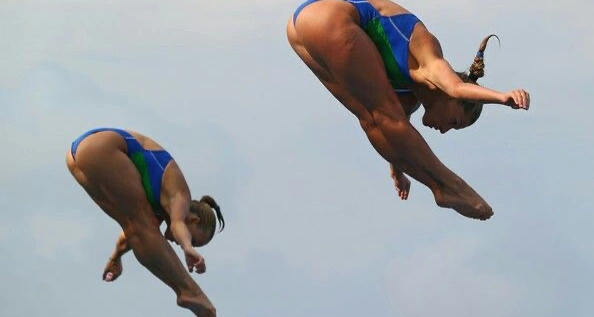
🌍 Global Reach
A remarkable aspect of the 2025 edition was the growing diversity of medal winners. Unlike previous championships dominated by a few nations, athletes from a record number of countries reached the podium, highlighting the sport’s growing global appeal.
💫 Emotions and Legacy
The championships were more than a competition. They became a celebration that united cultures and generations. Thousands of volunteers, countless unforgettable moments, and a festive atmosphere in stadiums and fan zones made the event historic.
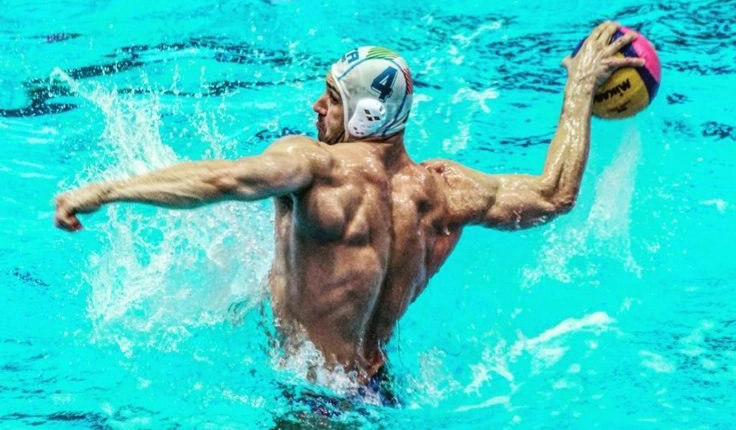
✨ The World Aquatics Championships 2025 proved that sport is more than medals — it is an energy that unites the world.
n 2025, Singapore became the first Southeast Asian nation to host the World Aquatics Championships. At the heart of the event was the World Aquatics Championships Arena — a modern, temporary venue built specifically for swimming and artistic swimming competitions.
🌊 Architecture and Concept
Constructed within the Singapore Sports Hub, the arena symbolized innovation and progress. Though temporary, it was designed to meet the highest international standards, accommodating tens of thousands of spectators while showcasing elegance and functionality. Its aesthetic embodied the championship’s theme — “Water Shapes Us.”
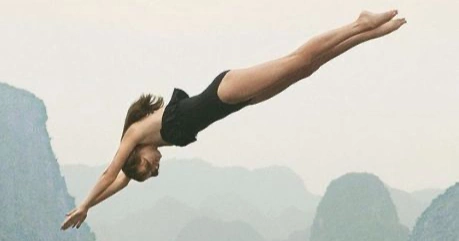
Lightweight structures, transparent elements, and creative lighting created an atmosphere of openness and energy, reflecting both Singapore’s modern identity and sport’s universal appeal.
⚡ Technology and Sustainability
The arena was designed with sustainability at its core. Reusable materials, energy-efficient lighting, and eco-friendly cooling systems made it a model of sustainable construction. After the event, many components were intended for reuse in other sports facilities, ensuring the project’s long-term value.
Inside, advanced technology enhanced the experience: digital screens, flexible broadcasting systems, and smart lighting synchronized with music for artistic swimming performances.
🌍 Symbolism and Impact
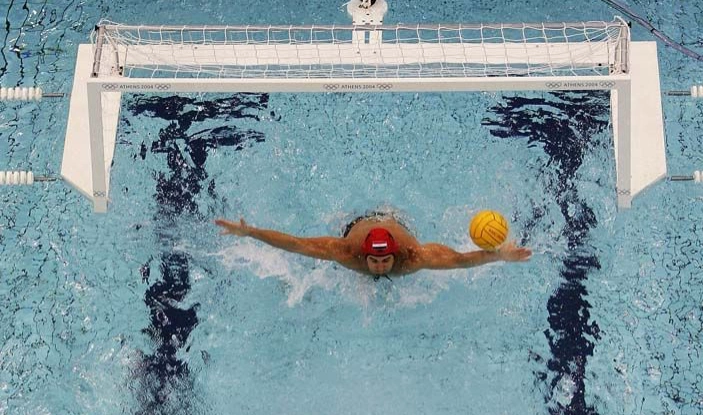
For Singapore, the arena became more than a venue — it was a cultural landmark. It demonstrated that even temporary structures can symbolize national pride and set an example for future international tournaments. Hosting athletes and fans from over 200 countries, it became a stage for records and unforgettable moments.
The arena also showcased the artistic side of sport, with synchronized swimming and opening ceremonies highlighting the harmony of water, movement, and art.
✨ Conclusion
The World Aquatics Championships Arena was more than just a stadium. It symbolized innovation, sustainability, and unity. Though temporary, it left a lasting legacy: a reminder that great events demand bold ideas and inspire generations long after the competition ends.
The year 2025 marks an important stage in the development of sport — both professional and recreational. Sport today is not only about records and victories but also about health, education, and social connection.
💪 Sport for Health
More and more people are making physical activity a part of everyday life. From morning jogs and fitness clubs to mass marathons and city tournaments, sport has become a cultural foundation of health. Governments and organizations emphasize prevention through activity, recognizing that movement reduces the risks of many chronic diseases.
🤝 The Social Role of Sport
Sport is a language everyone understands. In 2025, it continues to serve as a tool for unity and integration. Youth programs foster teamwork, discipline, and respect, while inclusive projects for people with disabilities prove that human potential is limitless.
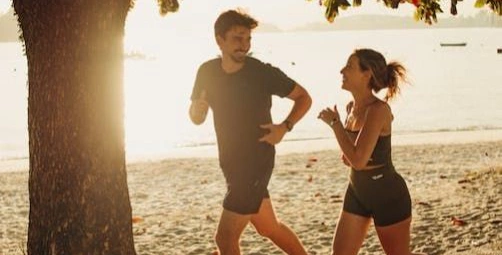
📱 Technology and Sport
Digitalization has reshaped the sports world. Smartwatches, fitness trackers, and apps help millions monitor progress and stay motivated. AI and virtual reality enable home training and online competitions. In professional sports, advanced analytics prevent injuries and enhance preparation.
🌍 Global Events
Major world championships, continental tournaments, and new leagues in 2025 bring millions of fans together. With the Olympic cycle leading toward Los Angeles 2028, this year becomes the stage for rising stars to showcase their talent.
🏅 The Future of Sport
The main trend in 2025 is balance: between elite achievements and mass participation. Sport is becoming closer, more accessible, and more inclusive. It’s not only about professionals but also about everyday people finding health, confidence, and community through movement.
🌟 Sport in 2025 is a universal bridge — between cultures and generations, between technology and tradition. It inspires, unites, and opens new horizons for humanity.
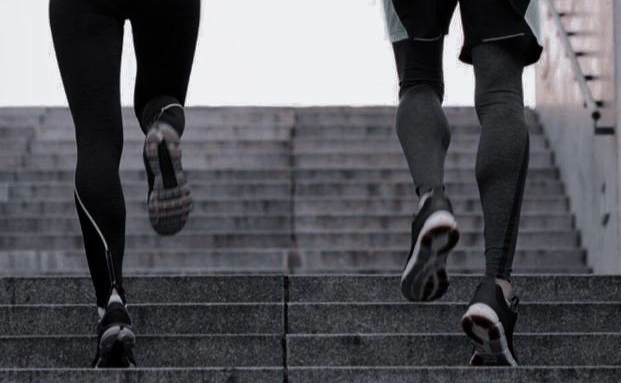
Batumi, often called the “Pearl of the Black Sea,” is Georgia’s vibrant coastal city. Known for its subtropical climate, palm-lined boulevards, and bold modern skyline, Batumi blends tradition and innovation like no other destination in the Caucasus.
🏙️ A City of Contrasts
- Modern Landmarks: The Alphabet Tower, Batumi Tower (with its Ferris wheel), and futuristic skyscrapers redefine the Black Sea skyline.
- Old Town Charm: Wander the cobbled streets with 19th-century facades, hidden courtyards, and Europe Square with its Neptune Fountain.
- Street Art & Sculptures: From the famous moving statue of Ali & Nino to whimsical seaside sculptures, Batumi’s waterfront is an open-air gallery.
🌴 Seaside Leisure
- Batumi Boulevard: A 7-km palm-lined promenade with cafes, bike paths, and beaches.
- Beaches: Pebble shores turn lively in summer, offering water sports, yacht tours, and sunset walks.
- Botanical Garden: Just north of the city, Batumi Botanical Garden boasts subtropical and exotic plants from nine climate zones.
🍇 Food & Flavors
Batumi’s cuisine is as rich as its landscapes.
- Adjaruli Khachapuri: A boat-shaped bread filled with cheese, butter, and egg—the pride of Adjara region.
- Fresh Seafood: From Black Sea anchovies to mussels grilled by the seaside.
- Local Markets: Overflowing with seasonal fruits (grapes, persimmons, pomegranates in autumn) and homemade churchkhela.
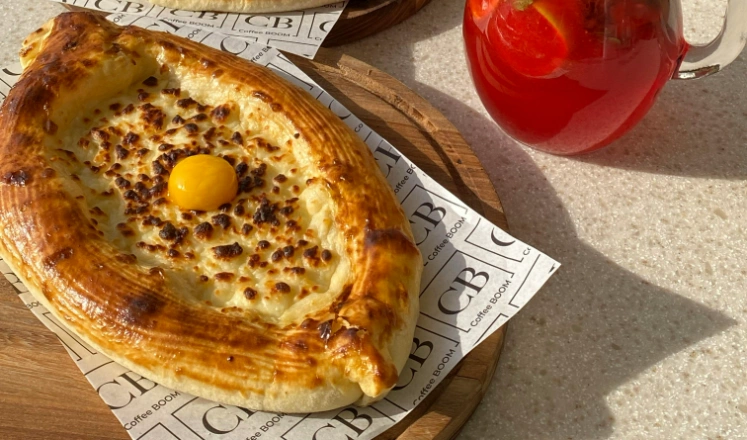
🎶 Culture & Nightlife
- Festivals: Batumi hosts international music, jazz, and film festivals throughout the year.
- Casinos & Clubs: The city has become a nightlife hotspot, earning comparisons to Las Vegas of the Black Sea.
- Local Traditions: Dance ensembles, polyphonic singing, and seaside rituals highlight Georgian cultural depth.
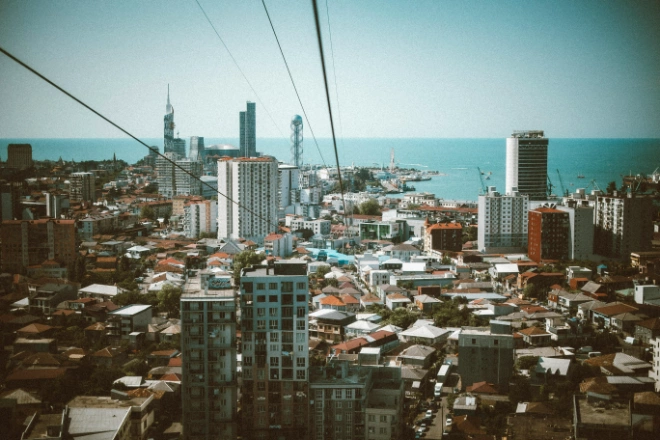
🚆 Gateway to Adjara & Beyond
Batumi is the perfect base for exploring western Georgia:
- Mountains & Villages: Just a short drive inland, the lush Adjara highlands offer waterfalls, stone bridges, and eco-tours.
- Wine Routes: Discover rare grape varieties unique to the region.
- Day Trips: Kobuleti’s quieter beaches, Gonio Fortress, or hikes to Mtirala National Park.

🌟 Why Visit Batumi?
Batumi offers something for everyone: futuristic architecture, seaside relaxation, delicious cuisine, and authentic Georgian hospitality. Whether you’re strolling along the boulevard, savoring Adjaruli Khachapuri, or watching the Ali & Nino statue embrace at sunset, Batumi leaves a lasting impression of beauty and contrast.
And just as pottery preserves Georgia’s ancient spirit, the country is preparing to showcase its modern creativity by hosting Junior Eurovision 2025 in Tbilisi. One celebrates tradition through clay, the other through music—but both highlight Georgia’s unique ability to carry its heritage proudly into the future.
Votes: https://crowch.com/vote/2943/statistic/